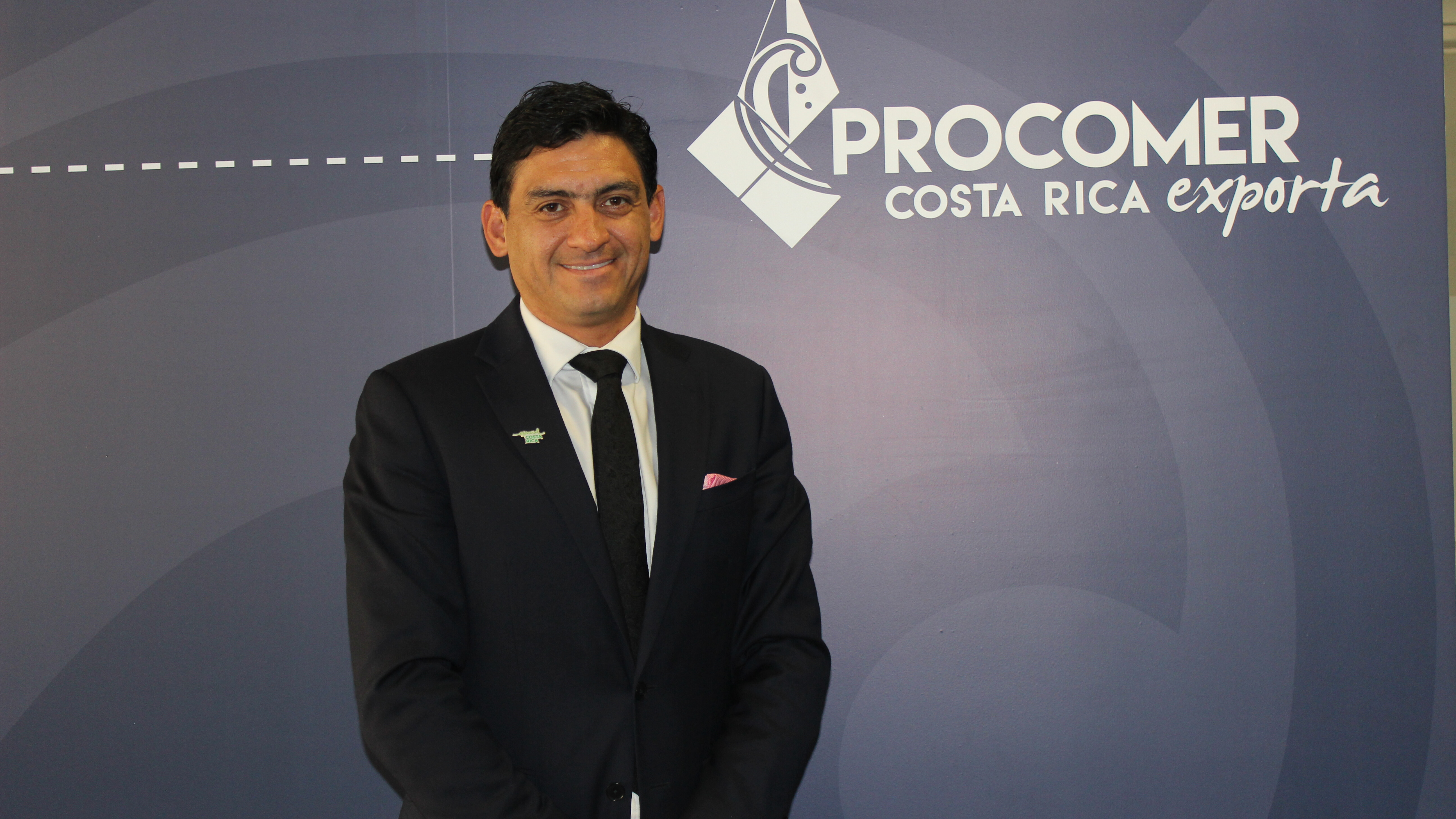Interview with Pedro Beirute, Managing Director of Procomer
Interview with Pedro Beirute, Managing Director of Procomer

What is Procomer’s role in the Costa Rican economy?
Pedro Beirute: We are a key part in Costa Rica’s strategy of specialisation. The Ministry of Foreign Trade handles the public policies governing exports, Cinde focuses on inward investment and Procomer promotes our exports, our free trade zones and our country brand. We have a special legal jurisdiction which allows us to act as a public-private organisation and our main aim is to promote the internationalisation of Costa Rican companies through exports. We are continually ranked the world’s top export promotion agency by the International Trade Centre, which is part of the World Trade Organisation.
Can you give us a profile of Costa Rica’s export offer?
PB: Last year Costa Rican exports were worth $20billion, with 52% made up of goods and 48% services. We sell around 4,500 products to 160 counties so it’s a very diverse offer. That helps the country as a whole because it reduces our dependence on specific factors, such as, coffee prices or the weather.
Our diverse range of markets gives us a global reach but in certain countries we are focused on particular sectors. For example in the UK we are focused in agriculture. Our agro exports are globally competitive and in certain niche markets have a good name for quality rather than price. However, some of our newer export products are less globally renowned. Take Costa Rican superfoods for example, at the moment they are exported to Central and North America but haven’t cracked Europe in a big way.
How is Procomer helping to boost exports?
PB: We have 40 international commercial liaisons that are helping us to conquer key markets. We have a varied strategy depending on local conditions. So in some countries we will have a dedicated office, in others we will work with a chamber of commerce while in others we will contract a third-party to act as a matchmaker. We also have a close understanding with our counterparts from other countries. So with the UK we have an agreement with the Department of International Trade whereby we share useful information. Indeed, although our mandate is focused on exports we understand that in today’s world of globalised supply chains it is vital to import as well, so we are keen to support trade flows in both directions.
"we have an agreement with the Department of International Trade whereby we share useful information…"
We have also developed a cluster strategy. For example, our medical device exports have grown strongly because the country has managed to establish a cluster for that industry. By grouping providers and manufacturers we can create an ecosystem that makes Costa Rica attractive for that niche. The companies help themselves but having a cluster also makes it easier for Procomer that the particular industry faces. We are now doing something similar with IT, where Costa Rica is establishing a cluster for areas such as big data, analytics and artificial intelligence.
How does Costa Rica’s high cost of electricity impact exports?
PB: We have many different tariffs for industrial users so it wouldn’t be accurate to say that all of our energy costs are high. Moreover, there has been an important shift in our exports over the past few decades. We are no longer exporting simple manufactures, such as textiles, that involve energy intensive processes. Now services, such as IT and Business Process Outsourcing, are important exports for us and they use far less energy for each dollar of export earning generated. Even the manufacturing has shifted to less energy intensive processes. One of our fastest-growing manufacturing sectors is medical devices, where design and quality control are far more important than energy. Finally it’s worth noting that the fact that we’re the only country in the world to obtain 100% of its electric power from renewable power.